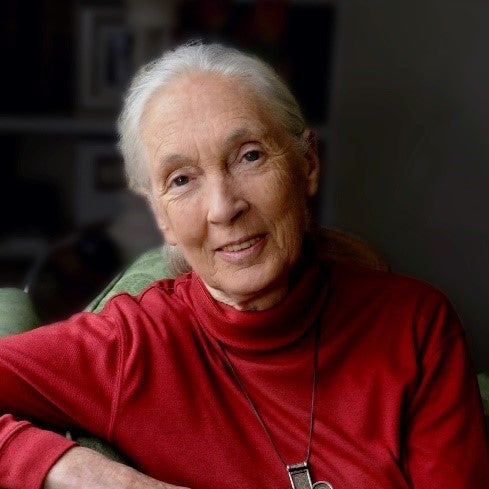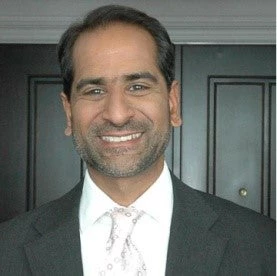For centuries, humans have indulged their vast curiosity by exploring and asking questions. We focused our attention predominantly on the land as it is our home, and let our imaginations fly into the starlit sky. We have mapped and explored more of the moon’s surface – and that of Mars – than what lies beneath the waves, even though 70 percent of our planet is covered by our ocean.
No Ocean, No Air, No Life
With the onset of climate change, we are beginning to truly understand what makes our blue planet blue, and the important life-giving functions the ocean has to offer for our very existence. Did you know that our ocean provides more than 60 percent of the oxygen needed for planet earth’s survival?
The ocean is as important to our Blue Planet as oxygenated blood is to our bodies. Every second breath a human takes on earth no matter where they live, comes from our ocean. Simply put: no ocean, no air; no air, no life. And right now, our ocean is telling us, I can’t breathe.
Oceans Regulate Global Climate
Science has now unequivocally proven that our ocean runs our climate systems too, by driving weather patterns and regulating temperatures. Our ocean is the primary source of rain that feeds our lakes, rain forests, rivers, and streams – the sustaining source of all life on earth, along with the sun. Study after study suggests that sea level rise - due to human-induced ocean warming - will wreak havoc on both coastal and inland communities.
Unfortunately, in formulating policy and climate action plans and in defining investments, decisionmakers are largely unaware of the role the ocean plays—and the solutions it offers—and are slow to act on the science and growing body of economic analysis.
Protect Our Ocean Assets
That’s right, our oceans are economic assets. Healthy coral reefs, mangrove and kelp forests, sea grasses, whales and waterways (also referred to as natural capital or blue assets in development finance) and the ecosystem services they provide such as carbon sequestration, coastal protection, recreation, and tourism provide jobs, drive trade, and propel economic growth. The ocean economy is estimated to grow from approximately US$1.5T (2010) to US$3T (2030) per year according to the World Bank and OECD, making it the greatest creator of new jobs and the engine for new global growth over the next 20 years.
But this priceless natural capital is at risk due to human induced threats like overfishing, plastic pollution, and the destruction of ocean habitats. We must always remember that our economic dreams rest on the foundations of a sound ecological system and protecting the very natural assets that provide so much economic value. In fact, over and above economic value, there are deep and intrinsic values to nature, affecting multiple generations, and essential for our physical and mental well-being, and for the well-being of the planet itself.
Four Things We Can Do Right Now, Together
As the world scrambles to meet carbon reducing targets and cap global warming, the ocean can no longer be an afterthought. Some things need to change and will take political will to do so. However, here are some simple things within your control to help make tomorrow’s change happen, today:
1. Immerse Yourself in Nature
This year’s Oscar-winning best documentary, My Octopus Teacher, suggests that meaningful ocean interactions can happen unexpectedly, steps from where you live, if you are open to allowing an experience to unfold.
You don’t have to be a scientist or expert to gain something positive from nature. Nature can heal and an octopus can become a wonderous mentor. With each new encounter in, on, or around our ocean, we discover something more about this remarkable planet we call home, and in doing so, new things about ourselves too.
Take a walk in a forest, dip your toes in the sea, remember how you feel once you do. Science has proven that even 20 minutes in nature can improve our physical and mental well-being. Immerse yourself in nature. And, when you are able, join us to learn a bit more of ours: My Octopus Teacher; Jane Goodall: The Hope.
2. Invest in Nature
Many organizations, including the World Bank, contribute generously to various conservation programs protecting iconic species like Giant Pandas across China, tigers of South/Southeast Asia, and ecologically rich niches like biodiverse Sundarbans to name a few. However, more needs to be done to encourage more science, restoration, and regeneration of degraded habitats; rewilding of viable habitats; and supporting local communities whose survival depends on these various ecosystems.
3. Nurture the Next Generation
Today’s children are tomorrow’s custodians of the planet and they are already encouraged and inspired to protect it . In our view, there has never been a better time to link, listen, and learn from young people and invest in them too.
- If you are a young person, do consider showcasing your project to nurture nature. The Jane Goodall Institute is establishing itself in India – JGI India – and is rolling out Oceans Are Us, a new program under JGI India’s Roots & Shoots. This program encourages an openness of heart and mind for young learners, along with compassion and consciousness, and in doing so, stimulates their life-long connection with the magnificence of the ocean. The Oceans Are Us educational program is designed to collaborate with young people, local educational institutions and their communities and like-minded national, regional, and global programs interested in helping young people create an emotional connection to our oceans.
- If you are a young ocean or environmental entrepreneur, put your ideas forward and join us on the next round of solutions-oriented innovation competitions: marine plastic pollution solutions, air pollution solutions, and ocean-climate change solutions.
- If you are an inspired adult, encourage young people to collaborate and co-create projects where they can educate themselves and others too.
4. Fall in Love
“People protect what they love,” said famed ocean explorer and “Captain Planet” Jacques-Yves Cousteau. Ultimately it is love for our planet that will slow or stop more destructive practices. But love cannot happen in a vacuum and requires exposure, understanding, and experiences. We must create opportunities for young people and all of us to fall in love with our ocean and all of nature.
There are many ways to get involved, including through The Sea Change Project, which brings together a community of scientists, storytellers, journalists, and film makers who are dedicated to exploring and telling stories—backed by hard science—about the oceans and kelp forests around the world to inspire action among scientists, policymakers, and individuals to engage with nature and protect our oceans.
We depend on our ocean for the future of life on earth, and our ocean depends on us to heal the harm we have inflicted on Mother Earth. Let’s join our hearts, hands, and minds to heal her. In doing so, she will heal us. It’s not too late.









Join the Conversation